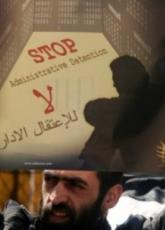
Thursday 5 December 2013
Occupied Ramallah - Addameer Prisoner Support and Human Rights Association confirms that the administrative detainees in the Occupation’s prisons have escalated their protests and will launch hunger strikes on every Monday and Thursday starting the week of 12 December 2013. This latest development is part of a wave of general protests the administrative detainees announced in mid-October 2013 in objection of the policy that holds them .in prison indefinitely without charge or the right to go to trial
The Higher Council of Administrative Detainees, a committee of administrative detainees in the prisons, addressed a letter to Palestinian human rights organizations, including Addameer, that calls on the Palestinian people, institutions and factions to support their protests. They also demanded that the prisoners issues be raised to international institutions, including the International Criminal Court.
The demands and actions of the administrative detainees in the letter can be summarized as follows: Currently they are engaging in a boycott of the military courts and the gradual returning of meals. They plan to launch an open hunger strike, including the ill prisoners who will refuse their medicines.
The Israeli Prison Service has met the administrative detainees’ protests with escalatory steps of punishment, including denying them of family visits, threatening to revoke their right to the canteen, shortening their recreational hours from five hours to one, threatening to transfer them to a special section in prisons in the Naqab (Negev) desert, and imposing collective isolation on them, especially those who engage in the food refusal and hunger strikes.
Addameer also confirms the continued hunger strikes of three administrative detainees that were arrested in October 2013. Mohammad Bader (25 years old) from Beit Liqia near Ramallah was arrested on 28 October 2013 and given a 6-month administrative detention order. His brother Islam Bader (20 years old) was arrested on the same day and received a 3-month administrative detention order. Tha’er Abdo from Kufr Ni’meh was arrested on 27 October and received a 6-month administrative detention order. The three of them announced their hunger strike on 15 November 2013, and have been on hunger strike for 21 days.
Administrative detainee Akram Fasisi ended his hunger strike after 59 days, after his health had deteriorated considerably.
During a visit to Ofer Military Detention Center, the detainees reported to Addameer’s lawyer that the IPS has been isolating them collectively in the same cell, and have denied them family visits for two months in an attempt to break their will.
They also confirmed to Addameer’s lawyer that they have not taken any kind of vitamins or medical supplements and are only drinking water. They also refuse to have medical examinations despite their deteriorating health conditions. In response, the IPS has informed them that they will be transferred to Ramleh prison clinic.
Addameer confirms its utmost support and solidarity with the administrative detainees and their demands, and rejects their arbitrary detention as well as the Occupation’s continued violation of international law. Addameer will continue to adhere to the prisoners demands to work on an international level to raise awareness on their cases through human rights committees, including the UN Human Rights Council in Geneva.
Addameer calls on the Ministry of Detainees and Ex-Detainees Affairs and Palestinian human rights organizations to form a clear strategy to support the administrative detainees’ hunger strike in order to guarantee its success, as well as forming a clear plan to bring the Occupation accountable on an international level for its arbitrary detention policies that violate the rules of the Fourth Geneva Convention.
Addameer also calls on the Palestinian people to stand in solidarity with administrative detainees and support their escalating protest, and to put pressure on the United Nations to carry out its responsibilities of protecting prisoners and respecting their right of freedom and living in dignity.